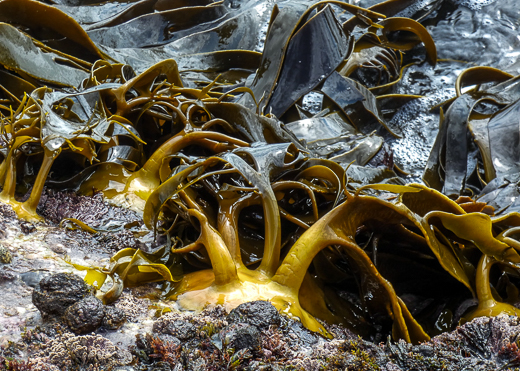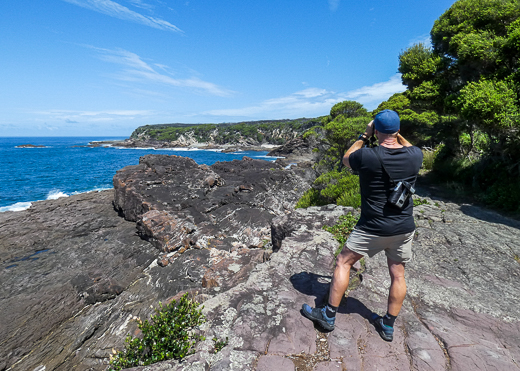Keen eyes spot Bull Kelp on the NSW south coast
Citizen scientists are contributing valuable data to help in a climate change study of Bull Kelp growing along the NSW south coast.
NSW Department of Primary Industries (DPI) researcher, Dr Tom Davis, said the citizen scientists provided important information for a research project tracking changes on NSW’s remaining Bull Kelp habitats linked to climate change.
“The citizen scientists highlighted many locations where Bull Kelp currently occurs on the NSW coast and even identified some new sites,” Dr Davis said.
“DPI Fisheries research scientists followed up with field surveys to confirm these sightings by citizen scientists and to update records of where Bull Kelp forests occur.
“While we have found only a small reduction in the previously known distribution of Bull Kelp in NSW, there have been some noticeable changes. We couldn’t find kelp at Bermagui, where it was reported to occur in 1946, but we did find it growing just 18 kilometres further south at Aragunnu.”
Bull Kelp (Durvillaea potatorum) is an important part of the south coast environment because it provides food and shelter to a wide range of marine species. Aboriginal people have traditionally used the tough, leathery fronds of Bull Kelp to store water and food.
This species of kelp is highly productive, growing up to 10 metres long and weighs up to 75 kilograms.
Dr Davis said it was vital to identify a baseline for the current distribution of Bull Kelp in NSW.
“Ocean warming has already caused Bull Kelp habitats to retract towards the south and further losses will occur in NSW over coming decades due to climate change.
“This is why it is vital we begin tracking changes in where this kelp grows now so we can establish the ecological impacts of losing this species of kelp.”
The DPI scientists have also collected genetic samples of Bull Kelp to identify strains that are most resistant to rising water temperatures and could be used in future restoration efforts.
DPI invited people to join the project as citizen scientists through the nature-based volunteer iNaturalist and the Atlas of Life websites.
The invitation remains open for anyone to add sightings.
Read more marine estate news.
